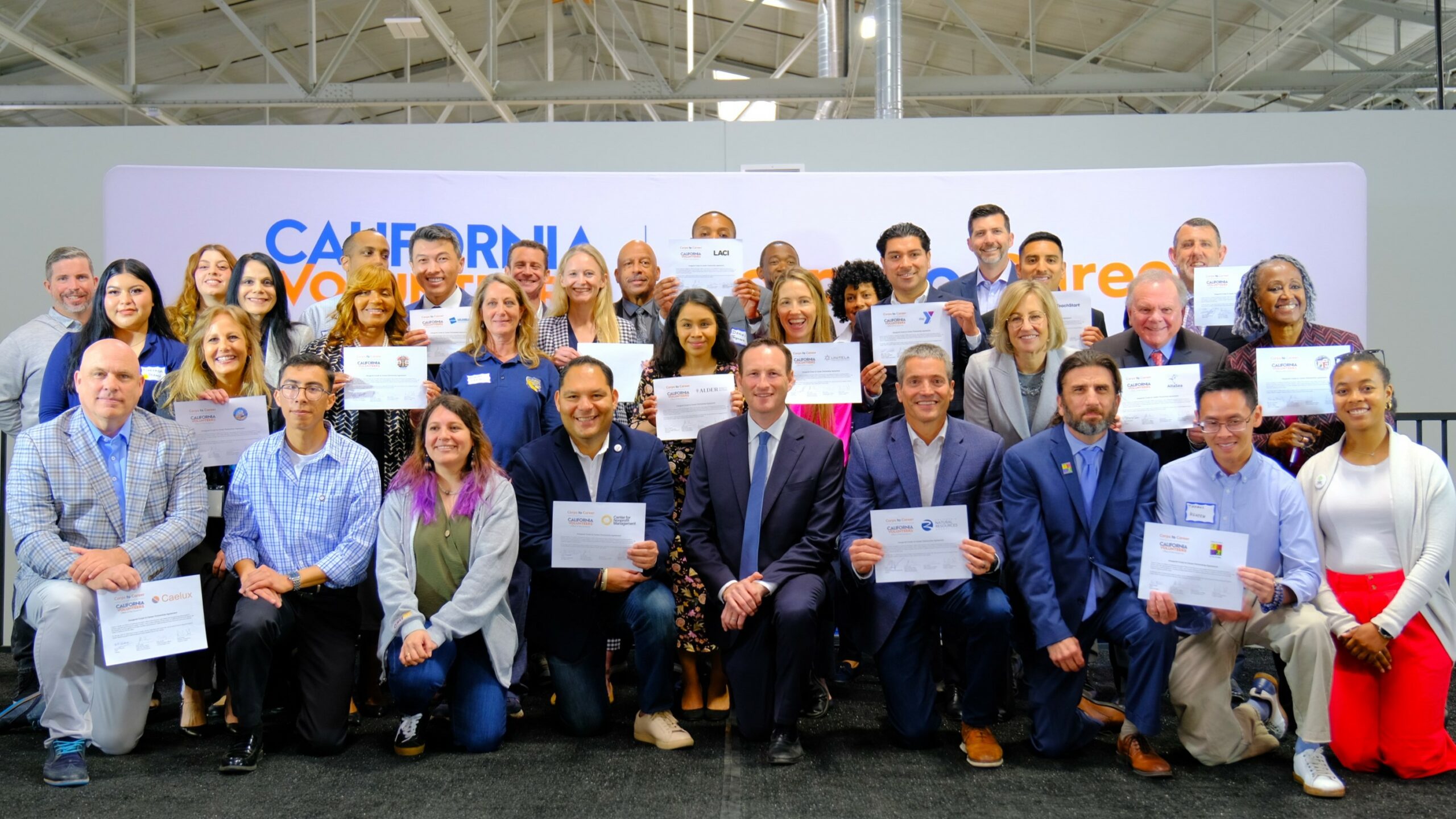There are more than 63.7 million Latinos in the Unites States, making it the nation’s largest racial or ethnic minority at 19.1% of the total population.
They also make up about 20% of the nation’s workforce.
Latinos are the youngest cohort in the country’s population with a median age of around 30, while the U.S. population, as a whole, is around 38.5.
Between now and 2030, 78% of the net new workers in the country – people entering the labor market minus the people retiring from the labor market – will be Latino, according to a forecast from the U.S. Department of Labor.
As our economy continues to shift the way we work, more than nine out of ten job postings (92%) in the country now require some level of digital skills development. However, more than half of Latinos (57%) have low to no digital skills.
“These data points show us the very urgent need to make sure that Latino workers get proper access to digital skills training opportunities. We really need to double down on our efforts to make sure that Latino workers, Latino business owners, and the Latino community as a whole, have the right tools to fully participate in the digital economy,” says Diego Deleersnyder, associate director for Policy & Research at the Aspen Institute Latinos and Society program.
He leads the Latino Digital Inclusion Initiative, which aims at identifying, developing, and uplifting promising ecosystem approaches that better prepare Latinos to compete in a 21st century digital economy.
Earlier this summer, Latinos and Society released the Aspen Principles for Latino Digital Success, a series of guidelines to inform the design and implementation of effective digital equity efforts targeting the Latino community.
These principles compile the main takeaways from the January meeting of the Aspen Latino Digital Success Task Force, co-chaired by Hector Mujica, Google.org; Juan Otero, Comcast Corporation; and Amanda Renteria, Code for America.

Expanding access to the the digital economy
Deleersnyder says the group envisions the principles and their accompanying questions as a framework for decision makers in the public, nonprofit, and private sectors on how to better support the Latino community in this journey.
“Basically, it’s four principles. The first one of them is digital access, which focuses on the aspects that need to be considered when developing policies or initiatives that aim at improving the access to internet and digital devices in the Latino community,” he says.
“The second one is around digital skills – a series of guidelines on how to make sure that the digital skills programming aligns with the needs and expectations of the Latino community, understanding that the Latino community is very heterogeneous, and that there is no one size fits all.”

The third principle is digital empowerment.
“This is basically to ensure that the private sector, the companies, the organizations, the employers, provide the tools that employees need in order to successfully growing their careers. This is not just about training the people. If the people that get trained don’t have proper access, there is no pipeline into high-quality jobs in the tech sector or good jobs in other industries that increasingly require digital skills, then all that effort is for nothing, right?” Deleersnyder continues.
The fourth principle is around sustainability – making certain there are sufficient investments across the capital continuum to support digital equity efforts in the long run.
He explains, “It’s a reflection on how right now there is a unique opportunity with all the public funding becoming available for digital equity efforts. And that’s amazing. That’s great news for all of us. But we need to make sure that we also start thinking of alternative sources of funding, focusing on the importance of securing funding from philanthropy, but also identifying innovative ways of funding some of these programs. And also the discussion around impact, how we can make sure that the dollars are going to the most impactful initiatives, because at the end of the day, the resources are limited.”
Deleersnyder points out that given the size and projected growth of the Latino workforce, it is imperative that the public, nonprofit, and private sectors act now to arm that workforce with the skills it needs to succeed.
“If the Latino workforce doesn’t have the tools they need in order to succeed in the digital economy, this is going to impact negatively the competitiveness of the U.S. economy, as a whole. So, definitely, this is something of interest not only to Latinos, but to the whole of the U.S economy and the whole of the U.S. society.”
Read the full Aspen Principles for Latino Digital Success report here.











